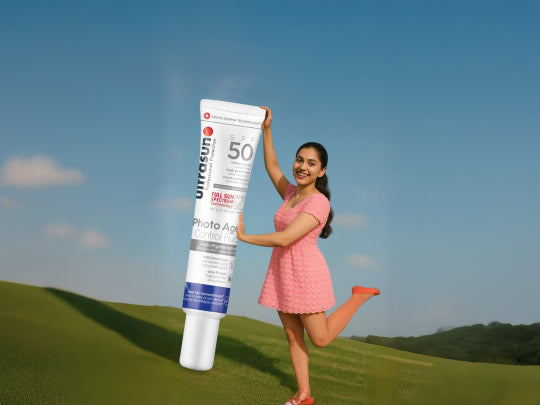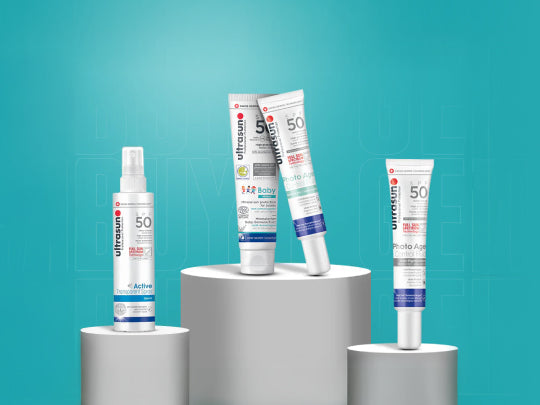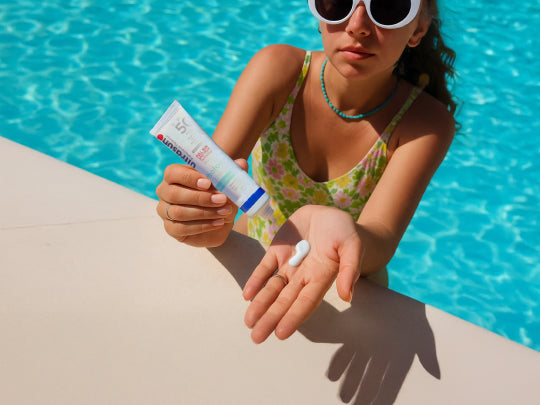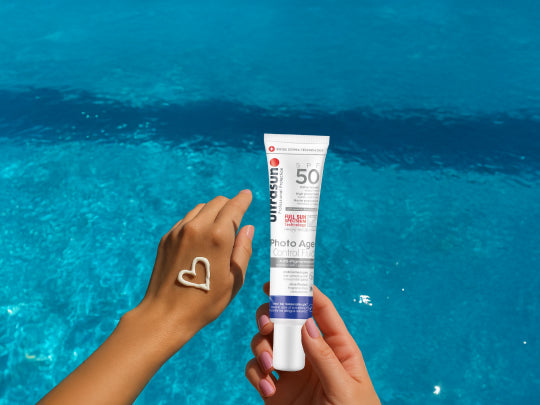1. Why SPF 50 Is Essential for Sensitive Skin
Sensitive skin is more prone to redness, irritation, and environmental stressors like UV rays. Using SPF 50 offers broad-spectrum protection—blocking up to 98% of harmful UVB rays and significantly reducing the risk of sunburn, premature aging, and flare-ups caused by sun exposure.
While SPF 30 may be sufficient for normal skin types, SPF 50 is often the sweet spot for those who need extra protection without compromising skin comfort.
2. What Makes Sensitive Skin React to Sunscreen?
Sensitive skin reacts more easily to ingredients like:
Fragrances
Alcohol
Chemical UV filters
Preservatives and dyes
These can cause stinging, redness, breakouts, or allergic reactions. That’s why it’s crucial to choose sunscreens with minimalist, soothing formulations designed specifically for reactive skin.
3. Key Ingredients to Look for in the Best SPF 50 Sunscreen for Sensitive Skin
If your skin flares up easily, look for products with calming and skin-friendly ingredients, such as:
Zinc Oxide or Titanium Dioxide – Mineral-based filters that physically block UV rays without penetrating the skin.
Ectoin – A natural stress-protection molecule that shields cells from UV and inflammation.
Hyaluronic Acid – Provides lightweight hydration without irritation.
Niacinamide – Reduces redness and strengthens the skin barrier.
Vitamin E – Protects against oxidative stress and supports healing.
These ingredients soothe, hydrate, and protect—making sunscreen not just tolerable, but beneficial.
4. Physical (Mineral) vs. Chemical Sunscreens for Sensitive Skin
Physical (or mineral) sunscreens are usually the best choice for sensitive skin. They sit on the surface of the skin and reflect UV rays, reducing the chance of irritation. Chemical sunscreens, on the other hand, absorb UV rays and may cause more sensitivity due to chemical reactions within the skin.
Go mineral if your skin often stings or burns after applying sunscreen.
5. Texture Matters: Choose Light, Non-Greasy Formulas
Many people with sensitive skin also dislike heavy, oily products that feel suffocating. Look for:
Gel or fluid textures
Non-comedogenic formulations
Fast-absorbing, dry-touch finishes
This ensures daily comfort and encourages consistent use, crucial for protecting delicate skin.
6. What to Avoid in Sunscreen for Sensitive Skin
Avoid products with:
ite Synthetic fragrance
Essential oils
Alcohol denat
Oxybenzone or Avobenzone (in chemical SPFs)
These are common triggers for stinging, rashes, and other skin reactions.
7. Best SPF 50 Sunscreen for Sensitive Skin – Product Spotlight
Ultrasun Photo Age Control Fluid SPF 50 PA++++ – Sensitive Skin Formula
Specifically formulated for sensitive and reactive skin
Fragrance-free, preservative-free, and emulsifier-free
Enriched with Ectoin for cellular protection
Offers broad-spectrum UVA/UVB/Infrared protection
Hydrates for over 8 hours
Lightweight, non-greasy, and perfect under makeup
This dermatologist-recommended sunscreen is a daily essential for anyone with easily irritated skin, combining high protection with skin-calming benefits.
8. Application Tips for Sensitive Skin Users
Patch test first: Always test on a small area before applying to your entire face.
Apply gently: Pat, don’t rub. Rubbing can trigger irritation.
Use daily: Apply every morning—even on cloudy or indoor days.
Conclusion: Protect Without Compromise
When you have sensitive skin, finding the right sunscreen can feel like a frustrating guessing game. But it doesn’t have to be. With SPF 50 protection, the right mineral ingredients, and gentle formulations, you can confidently protect your skin without redness, stinging, or breakouts.
Investing in the best SPF 50 sunscreen for sensitive skin is not just about sun protection—it's about preserving your skin’s health, comfort, and glow. Choose wisely, and your skin will thank you every single day.







